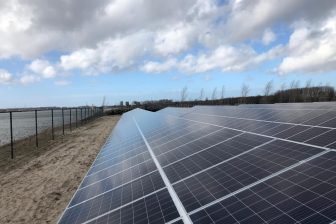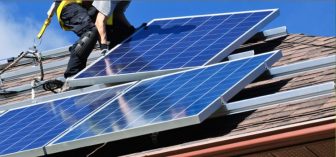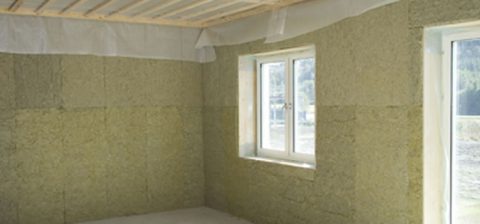
Door isolatie tientallen miljarden te besparen op stroomnetten Europa
21 oktober 2015 – Wanneer in Europa op grote schaal gebouwen en woningen energiezuinig worden gemaakt hoeft er veel minder in de elektriciteitsnetten geïnvesteerd te worden. Het kan 80 tot 152 miljard euro aan investeringen schelen.
Dat blijkt uit een onderzoek van Ecofys in opdracht van Eurima, de Europese vereniging van isolatiefabrikanten. Er is al veel onderzoek gedaan naar de effecten van energiebesparing in de gebouwde omgeving, maar dit is het eerste onderzoek dat ook kijkt naar de gevolgen voor de elektriciteitsnetten. Energiezuinige renovatie van gebouwen en woningen kan, zelfs als voor de verwarming grootschalig op elektriciteit wordt overgestapt, voor heel Europa de vraag naar elektriciteit doen dalen met 57 Gigawatt, evenveel als de gehele stroomvraag van Nederland en Oostenrijk samen. Doordat de piekbelasting voor het net fors zal dalen hoeft er veel minder in de verzwaring van het net geïnvesteerd te worden. Die besparing kan oplopen van € 80 miljard tot € 152 miljard.
Het rapport gaat overigens niet in op de kosten van de energiezuinige renovatie van gebouwen, maar sluit aan bij de besparingsdoelstellingen die Europa hanteert.
Gebouwen zijn verantwoordelijk voor 40% van de Europese energieconsumptie en bieden tegelijkertijd de grootste besparingsmogelijkheid, omdat 75% nog niet geïsoleerd is.
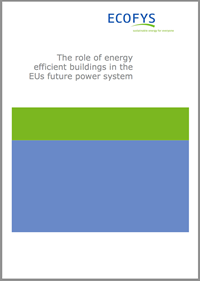 Uit het persbericht van Eurima
Uit het persbericht van Eurima
‘(…) Measures to1reduce energy demand in buildings could reduce electricity needs and peak loads by nearly 57 gigawatts (GW) and cut CAPEX requirements in the power sector by between €89-153 billion by 2050 according to the latest Ecofys report. The study entitled “The role of energy efficient buildings in the EUs future power system”, calls for a more holistic modelling of public policy cost/benefit analysis that includes the estimation of the economics of energy efficiency in buildings including deep renovation strategies.
The European Commission is currently working on a strategy to reduce energy wasted in buildings from heating and cooling and in parallel reviewing the impact of the EU’s two legislative pillars on buildings: the Energy Performance in Buildings Directive (EPBD) and the Energy Efficiency Directive (EED) with a review to revise both Directives in 2016.
“The results of the latest Ecofys study on role of energy efficient buildings in the EUs future power system reveal some important considerations at a very opportune moment. They show that an energy efficient building realised by deep renovation not only brings energy demand reduction and delivers multiple benefits to meet our growth and climate ambition, it includes the potential to reduce costs and increase efficiencies on the supply side” This is also very important in the context of the upcoming heating and cooling strategy” said Jan te Bos, Director General at Eurima.
The report adds to the well-known benefits of an efficient building stock and the wider economic and societal impacts, such as lowering energy bills; reducing energy dependence, lowering CO2 emissions and creating jobs through deep renovation programmes.
The report also finds that:
- Energy efficient buildings need and consume less energy. Noteworthy is that this actually translates into a reduction of the system peaks (and helps avoid oversized capacity). If we reduce the peak, we reduce investments needed in generation and grid infrastructure, which means less energy, needs to be generated and transported, which results in cuts to system operational costs and losses.
- Highly efficient and well insulated buildings can keep desired room temperatures stable over a longer period, also when the heating system is turned off, which is essential for thermal comfort. The impact of this on the flexibility of the power system can lead to an additional reduction of around 12 GW.
- The reduction of peak loads increases flexibility adding up to 89-153 billion EURO of potential CAPEX reduction in the power sector by 2050. (…)’
Uit een bericht van Eurima
‘(…) These savings are usually ignored when the economics of buildings efficiency improvements are estimated, consultancy Ecofys said in a study for insulation manufacturers’ lobby Eurima. The savings would help to counter the significant investment that will be needed in electricity generation and in strengthening the grid as the heating sector turns to heat pumps that can convert increasing amounts of renewable power into heat, Ecofys said. (…)’
Uit een bericht van Ensoc over het rapport
‘(…) De conclusie van het rapport betekent dat Europa meer werk moet maken van renovatie. Dit gebeurt al deels via het Energy Efficiency Action Plan, dat beoogt om jaarlijks 60 tot 100 miljard te investeren in gebouwen om de doelstelling van 20 procent energiebesparing in 2020 ten opzichte van 1990 te bereiken. Vorig jaar kwamen Europese leiders een energiebesparingsdoel overeen van 27 procent in 2030. (…) Toch investeert Europa minder dan de helft dat nodig is. De investeringen zijn vijf keer lager dan benodigd voor een energieneutrale energievoorziening in 2050. (…) De Europese Commissie werkt ook aan een strategie voor verwarming en koeling. Deze strategie zal naar verwachting in februari 2016 worden gepresenteerd. Ook herziet de Commmussie de richtlijnen voor energie-efficientie en energieprestaties in gebouwen.(…)’
Uit een bericht van Euractiv
‘(…) “The findings of this report, in particular the supply side financial and flexibility gains flexibility should be considered in the upcoming heating and cooling strategy and the reviews of the efficiency directives,” said Celine Carré, the chairwoman of Eurima’s energy efficiency committee. (…)’
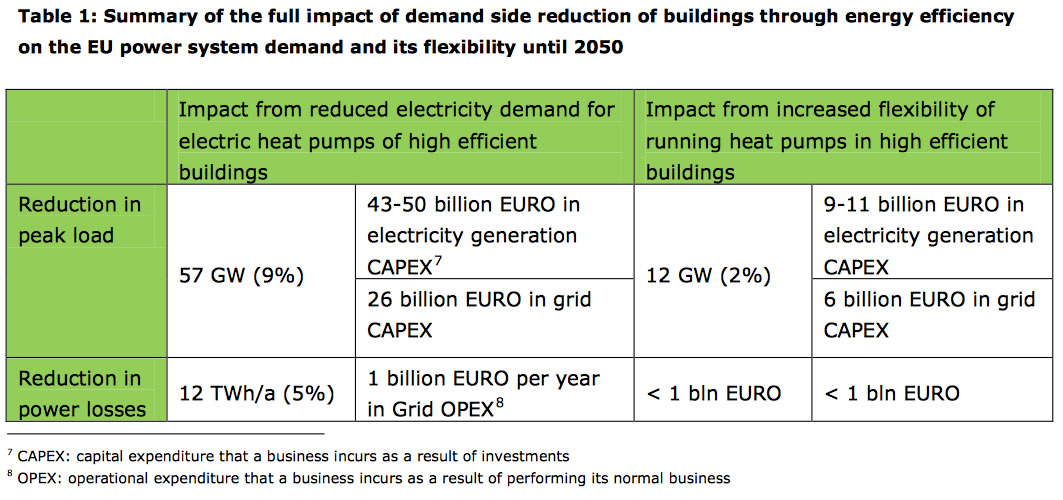
Bronnen
Eurima, persbericht, 15 oktober 2015: Buildings are Europe’s first fuel – New report highlights the importance of an energy efficient building stock to a sustainable energy supply
Eurima, 15 oktober 2015: Renovation could cut grid costs by € 153bn
Eurima, rapport, 15 oktober 2015: The role of energy efficient buildings in the EUs future power system (pdf, 30 pag.)
Ensoc, 16 oktober 2015: Renovatie kan miljarden besparen op netinvesteringen
Euractiv, 15 oktober 2015: Renovation could save billions in grid investment, say researchers
Foto: Paroc

